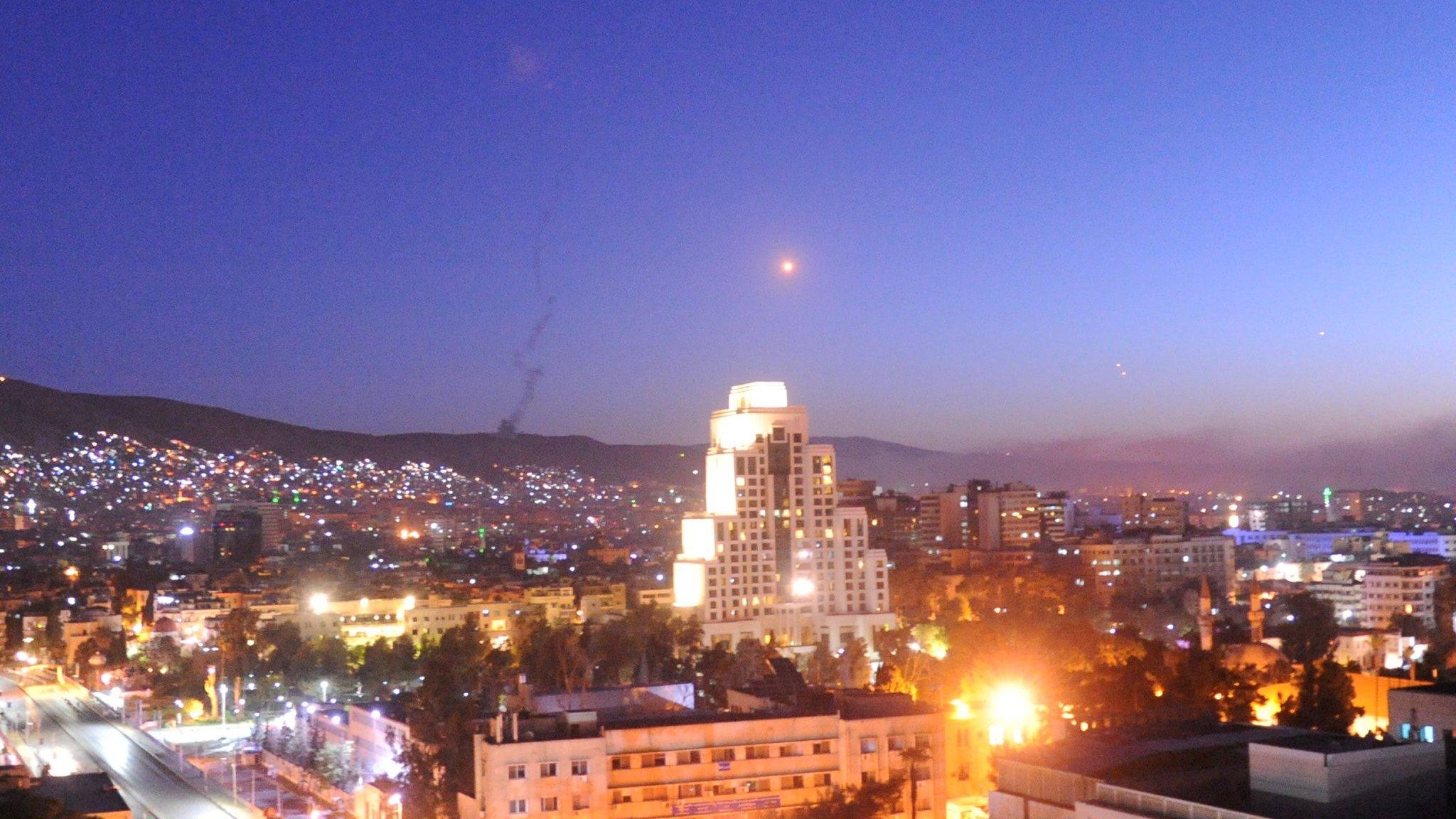Syria air strikes: UK publishes legal case for military action
- Published
Theresa May said the UK had taken part in "limited and targeted strikes"
Air strikes on Syria were legally justified on humanitarian grounds, government documents say.
Downing Street published its legal case, external for military action hours after Theresa May said she was "confident" the strikes carried out by the UK, France and the US had been successful.
Labour leader Jeremy Corbyn described the action as "legally questionable".
Bases near Damascus and Homs were targeted in response to an alleged chemical attack on the town of Douma.
Syrian state media said the military action had been "a flagrant violation of international law", while ally Russia's President Vladimir Putin condemned it "in the most serious way".
US President Donald Trump hailed the overnight strikes as "perfectly executed", tweeting: "Mission Accomplished!".
At a meeting of the UN's Security Council, the UK's ambassador Karen Pierce said the strikes had been "limited, targeted and effective", with the impact on civilians "minimised".
She said repeated attempts to hold the Syrian regime to account had been met with Russian "obstruction and resistance", and the UK and its allies would "continue to pursue a diplomatic resolution to the crisis".
The US's ambassador Nikki Haley told the council diplomacy had been given "chance after chance", and the US remained "locked and loaded".
The Security Council rejected a resolution drafted by Russia, which condemned "the aggression against the Syrian Arab Republic by the US and its allies". A resolution needs nine votes to pass and only Russia, China and Bolivia voted in favour.
Meanwhile, Nato secretary general Jens Stoltenberg said all allies had given the action their full support.
Both the Pentagon and Russian defence ministry said they had no confirmation of civilian casualties while the Russians also said there were no military casualties.
'No alternative'
Speaking in Downing Street earlier, Mrs May said: "This collective action sends a clear message that the international community will not stand by and tolerate the use of chemical weapons."
Drawing a link with the recent nerve agent attack in Salisbury, Mrs May added: "We cannot allow the use of chemical weapons to become normalised - either within Syria, on the streets of the UK or elsewhere."
Mrs May will make a statement in Parliament on Monday and give MPs a chance to ask questions.
Mr Corbyn said MPs should have been consulted before the strike and earlier called on the PM to "publish in full the legal justification and basis for" the action.
Party leaders including Scotland's First Minister Nicola Sturgeon, external and the Liberal Democrat's Sir Vince Cable said MPs should have had a vote on the action - while Plaid Cymru's Leanne Wood, external accused the government of putting UK security at risk.
But Northern Ireland's Democratic Unionist Party said Mrs May had "the full authority" to order the air strikes.
Jeremy Corbyn wants the PM to publish the legal justification for air strikes
In the summary of legal advice given by Attorney General Jeremy Wright to Mrs May, Downing Street outlined why the UK was "permitted under international law" to take measures in the face of "overwhelming humanitarian suffering".
It said there were three reasons why the strikes met international laws for military action on humanitarian grounds:
The "repeated lethal use of chemical weapons by the Syrian regime constitutes a war crime" and it was "highly likely the regime would seek to use" such weapons again
Other attempts to "alleviate the humanitarian suffering caused by the use of chemical weapons" had been blocked and there was "no practicable alternative" to the strikes
The action was "carefully considered" and the "minimum judged necessary for that purpose"

Analysis: Speed of legal release unsurprising
By Norman Smith, BBC chief political correspondent
Ever since the war in Iraq, the legal advice received by the government has been central to the inevitable political argument over the rights and wrongs of military action.
It's no surprise then that Jeremy Corbyn should hone in straight away on doubts over the legality of the air attacks.
And no surprise either that Downing Street should choose to publish so swiftly a summary of the legal advice it has received - in order to avoid the sort of damaging criticism suffered by the Blair government over its refusal to do so.
Equally unsurprising, the advice received by Theresa May gives her clear backing for the case for military action - citing the right of governments to act to alleviate "overwhelming human suffering".
And just for good measure, it also suggests that the Syrian regime is guilty of a war crime and crimes against humanity over the use of chemical weapons.
But will this legal advice shift public or political opinion?

The Ministry of Defence said eight Storm Shadow missiles had been launched by four RAF Tornados at a former missile base, 15 miles west of Homs.
It is thought President Bashar al-Assad's regime had been stockpiling materials used to make chemical weapons there, it said.
A spokesperson added the facility was located "some distance" from "concentrations of civilian habitation", and the risk of contamination to the surrounding area had been minimised.
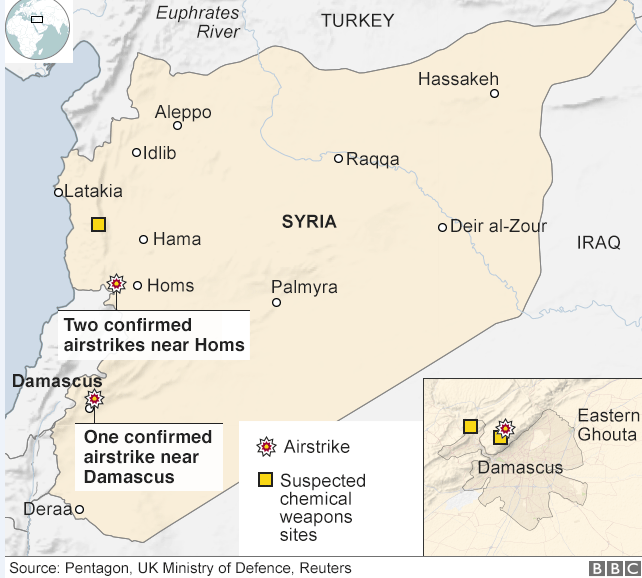
Addressing a press conference on Saturday, Mrs May said she believed the strike action had been "the right thing to do" and was "absolutely in Britain's national interest".
"This is not about intervening in a civil war. It is not about regime change," she said.
"It is about a limited and targeted strike that does not further escalate tensions in the region and that does everything possible to prevent civilian casualties."
She said the UK government believed it was "clear" the Assad regime was responsible for the "despicable and barbaric" attack on civilians on 7 April.
Evidence suggested a barrel bomb and a regime helicopter had been used, she added. "No other group could have carried out this attack."
RAF planes took off from their airbase in Cyprus ahead of the strikes in Syria
Reporting from RAF Akrotiri in Cyprus, the BBC's Jonathan Beale said the Tornados had left the airbase in the early hours of Saturday.
He added the cruise missiles had been fired "well away from Syrian airspace" and were out of the range of the regime's air defences.
Downing Street also said Mrs May has spoken to several world leaders from countries including Germany, Canada, Australia, Jordan, Turkey, Italy and Cyprus as well as EU President Donald Tusk.
A spokesman said "all the leaders agreed" with Mrs May about "the importance of restoring the international norm that the use of chemical weapons is never acceptable".
Mrs May has also spoke to Mr Trump and French President Emmanuel Macron about the "success" of their joint mission.

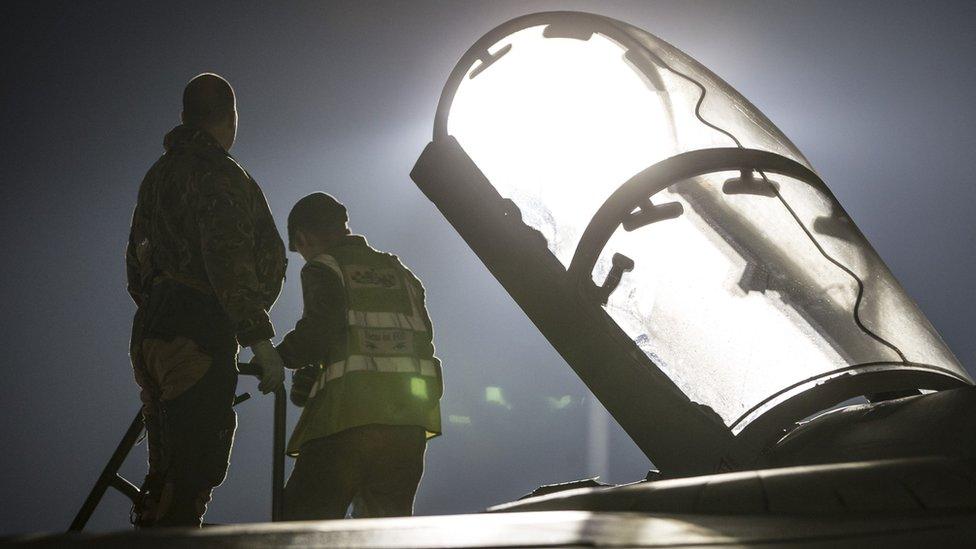
PM faces 'almighty row' over Syria strikes
By Laura Kuenssberg, BBC political editor
Prime ministers don't choose the decisions that face them. But they have to judge which way to jump.
In 2013, Theresa May's predecessor tried and failed to get approval for military action against President Assad. There was international alarm, then as now, about his suspected use of chemical weapons.
But MPs rejected David Cameron's plan and he didn't try again to persuade Parliament it was necessary. This time, she has avoided that particular obstacle by taking action alongside the US and France while MPs are away.

What did the UK use?
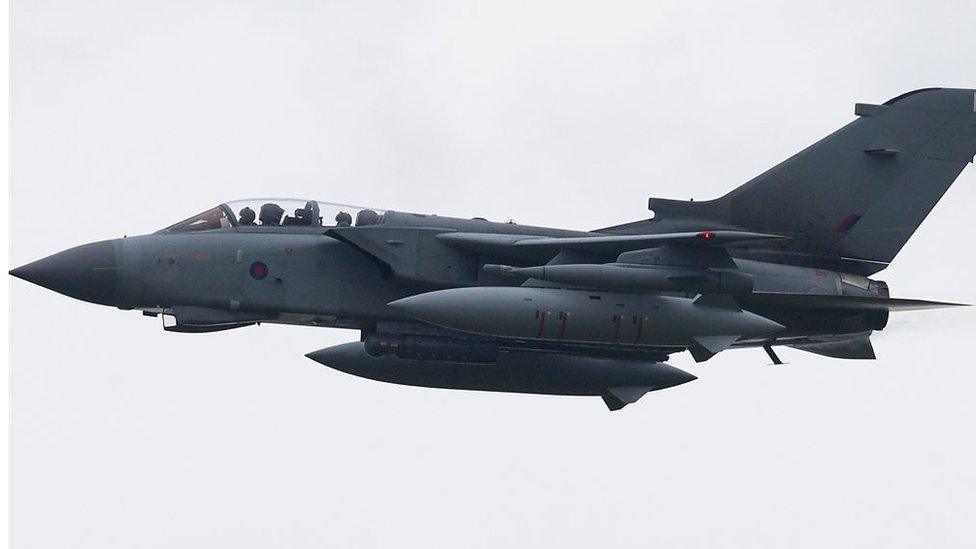
The RAF sent four Tornado GR4 aircraft from Cyprus, each armed with two Storm Shadow cruise missiles.
The Tornado has been one of the mainstays of the RAF since first entering service in 1980 and the aircraft were used to enforce no-fly zones in Iraq.
Weighing in at 2,866lb (1,300kg), measuring 16.7ft (5.1m) in length and with a range in excess of 150 miles (240km), the "bunker busting" Storm Shadow has been described by the air force as "arguably the most advanced weapon of its kind in the world".
The range means that none of the GR4s would have been required to cross into Syrian airspace to launch the assault.
The aircraft were sent from RAF Akrotiri, a British base since the 1950s on the southern side of Cyprus, some 213 miles (343km) west of Homs.
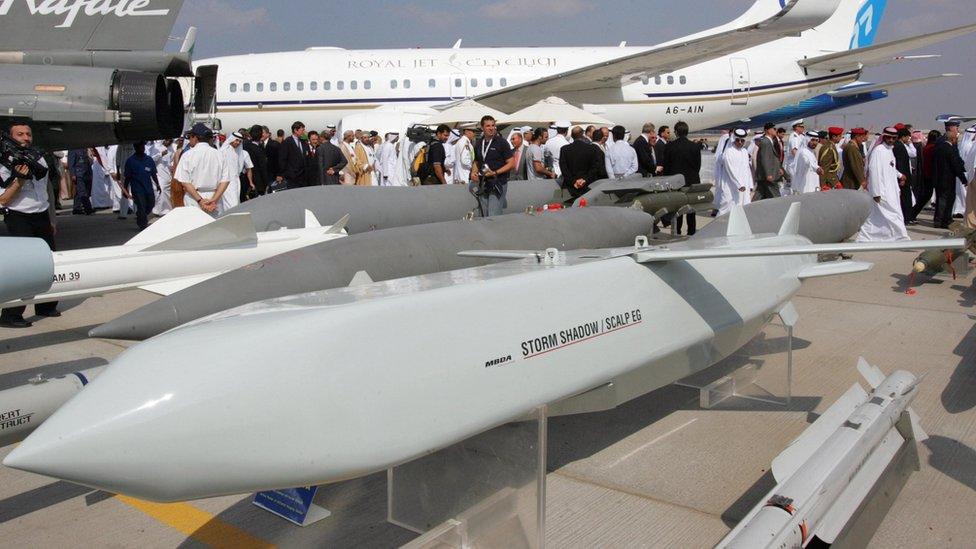
The Storm Shadow missile (pictured at an airshow in Dubai) has a range of more than 150 miles

- Published14 April 2018
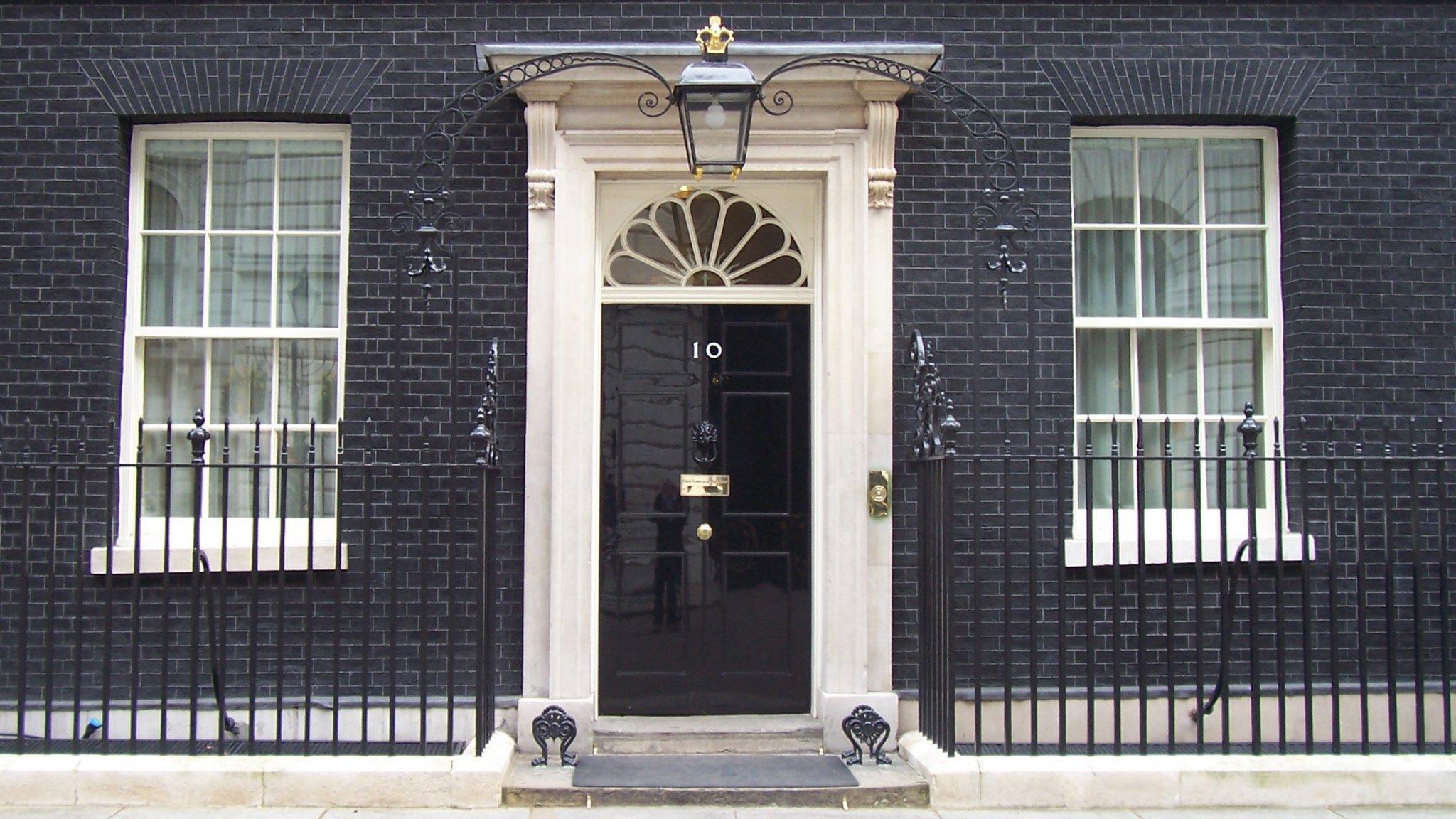
- Published14 April 2018
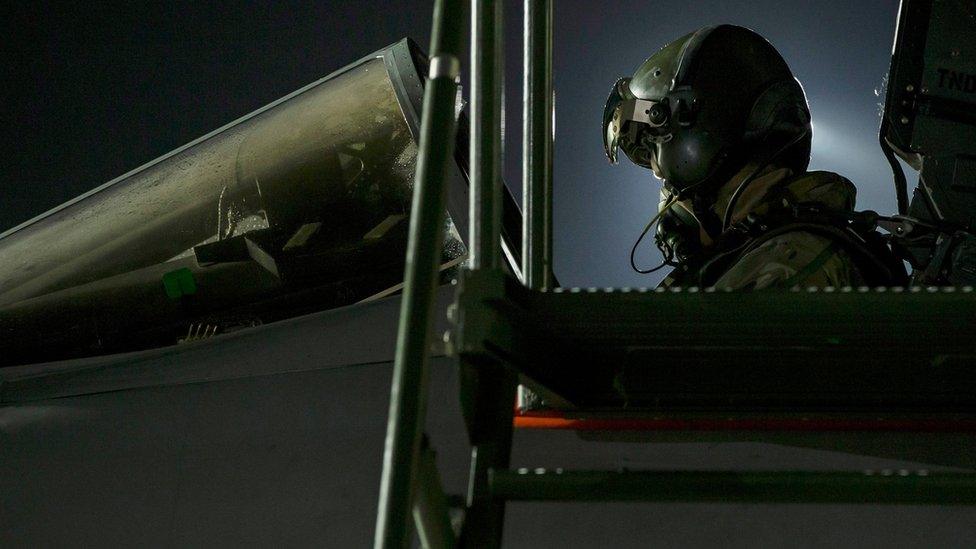
- Published14 April 2018
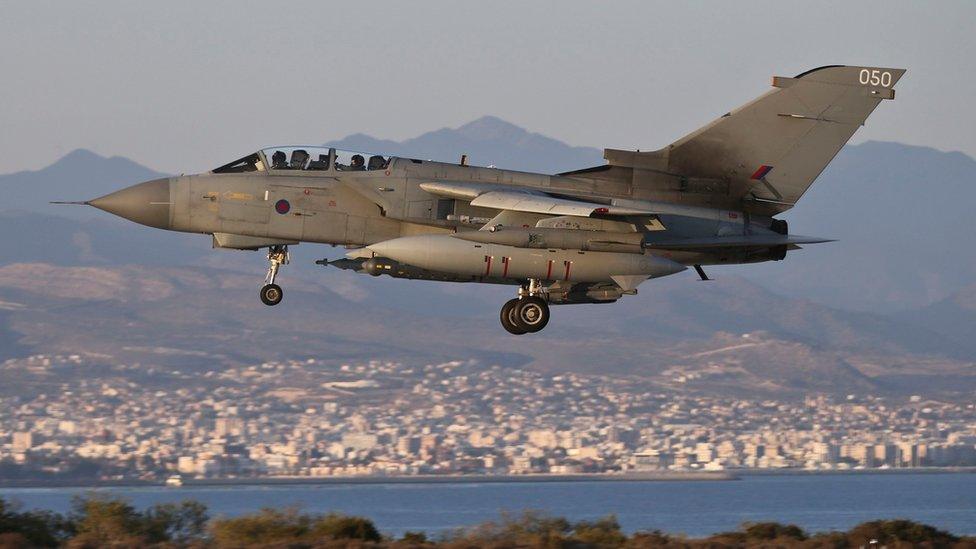
- Published14 April 2018
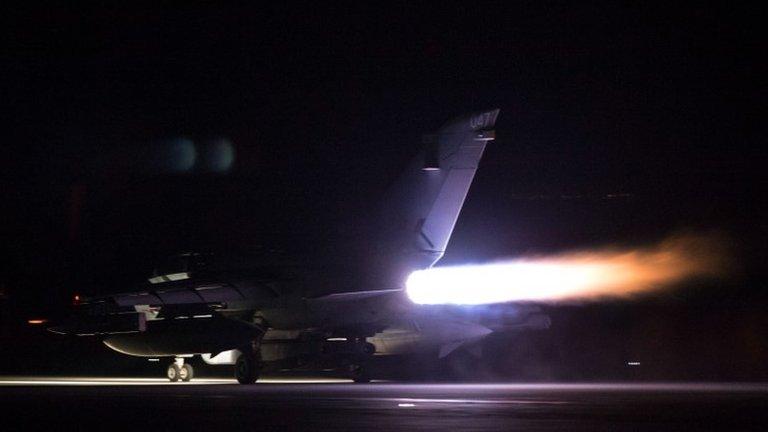
- Published14 April 2018
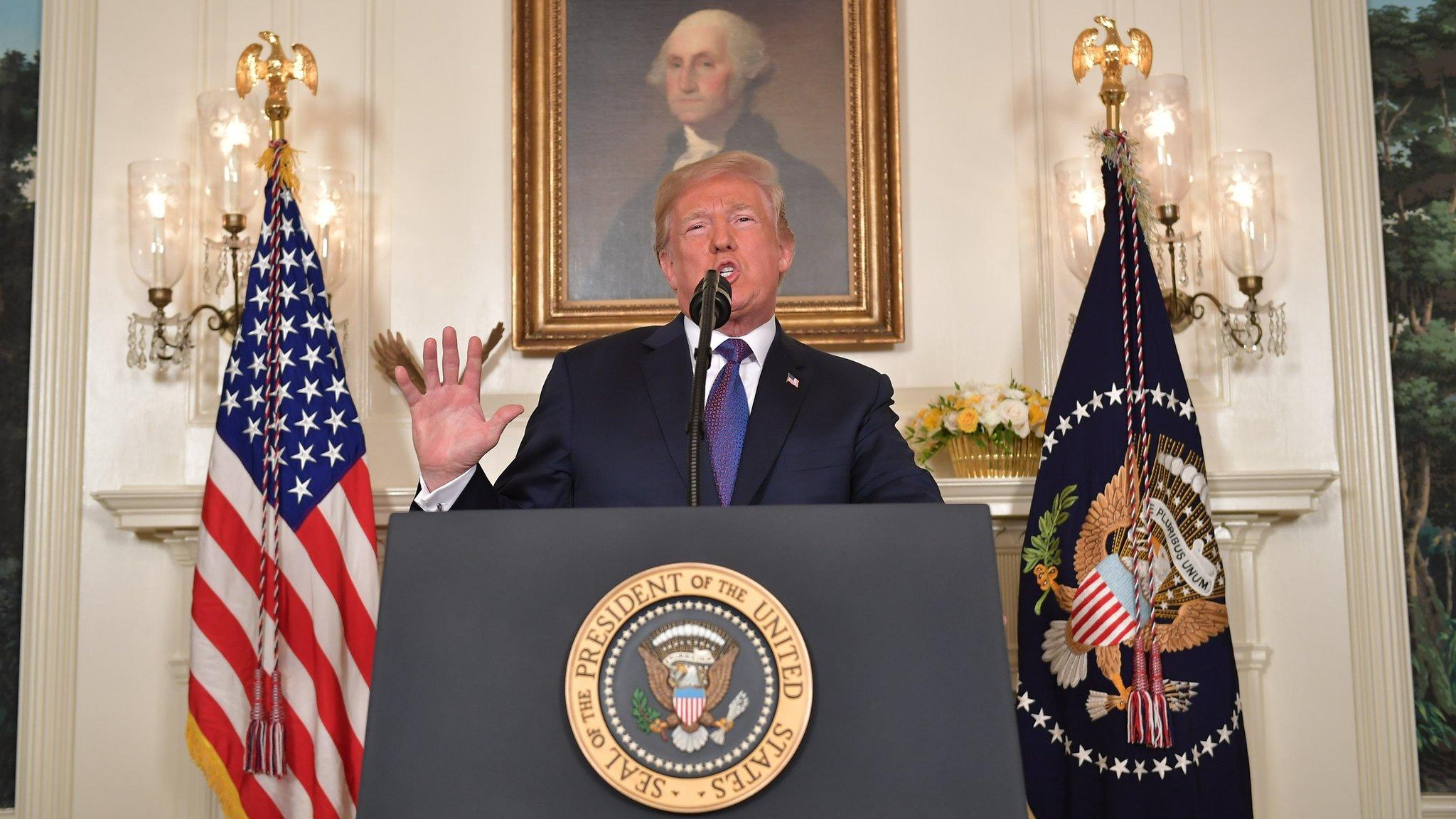
- Published14 April 2018
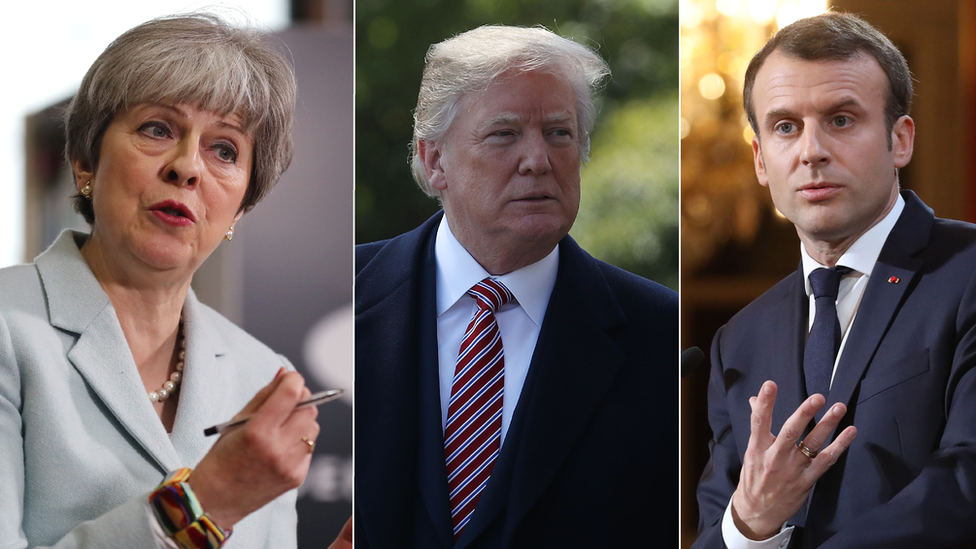
- Published14 April 2018
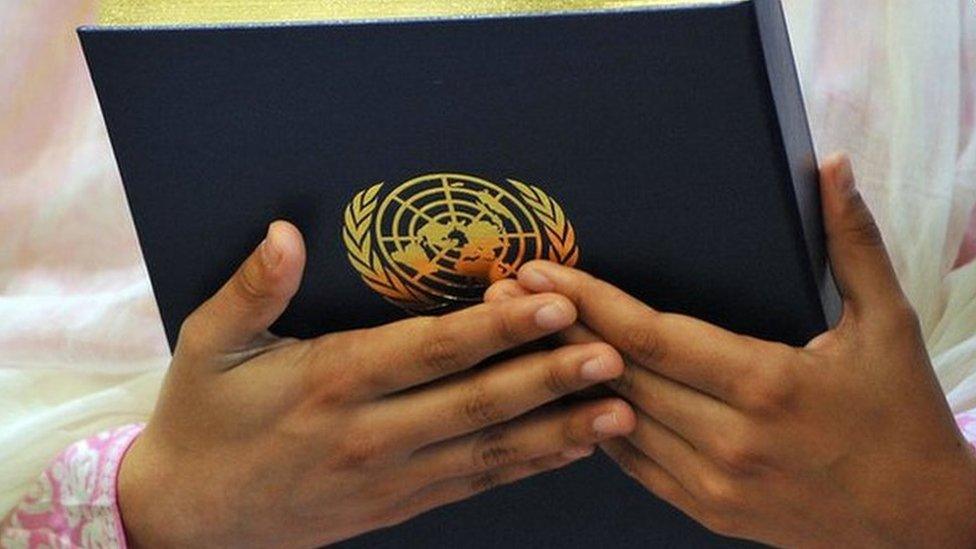
- Published14 April 2018
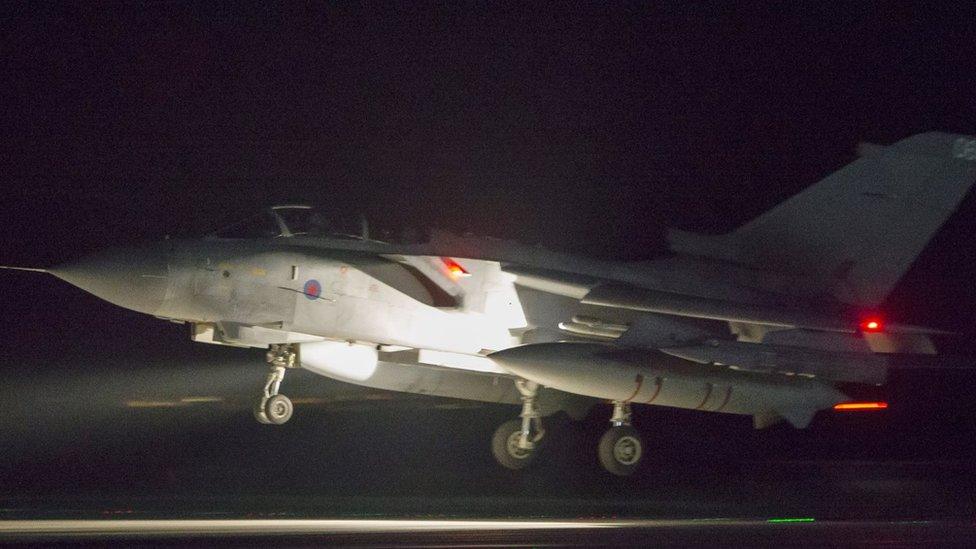
- Published12 April 2018
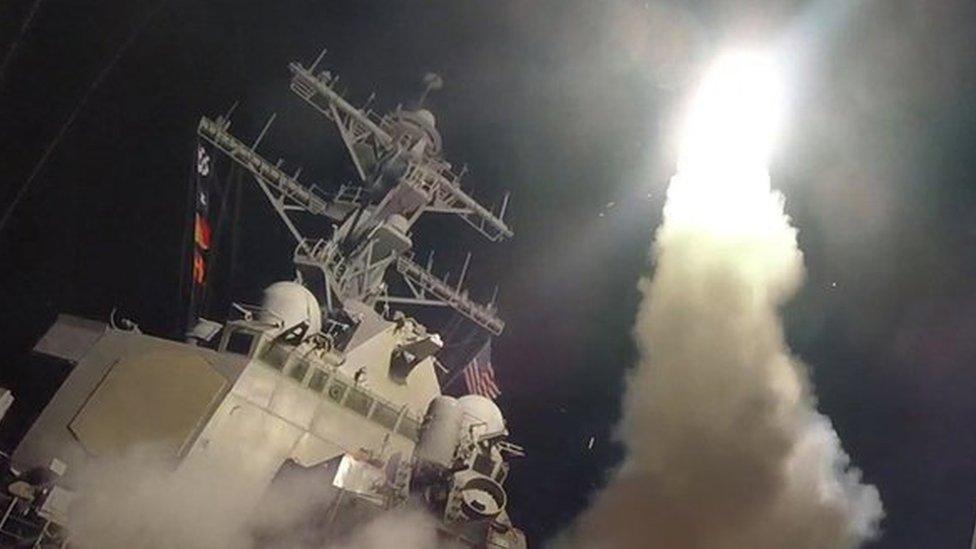
- Published14 April 2018
